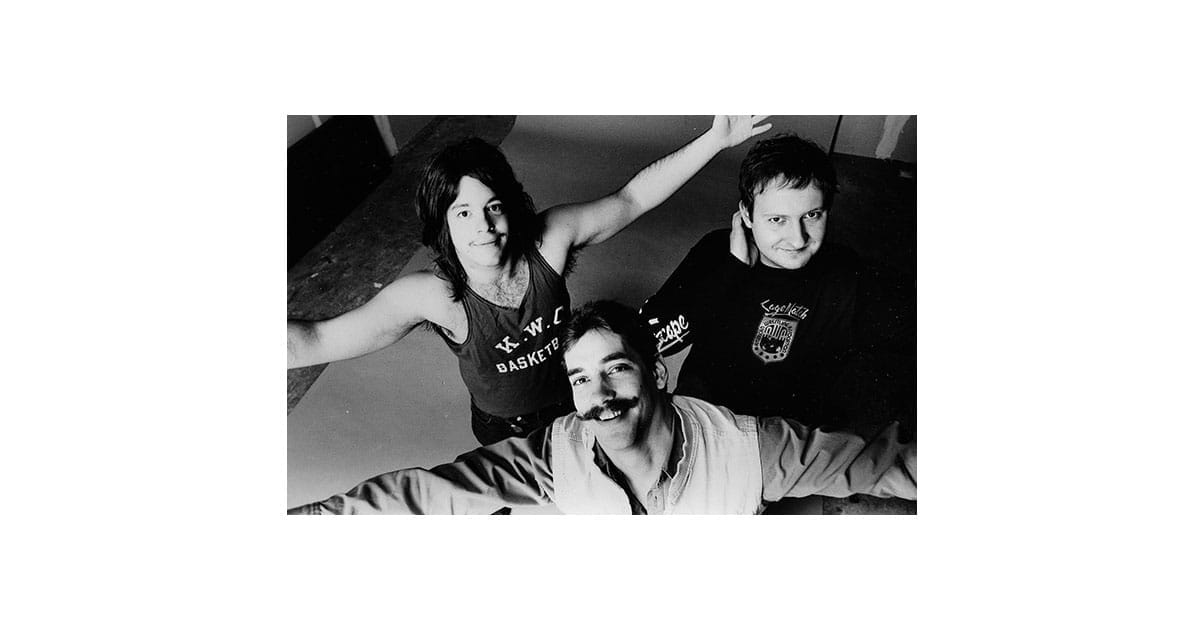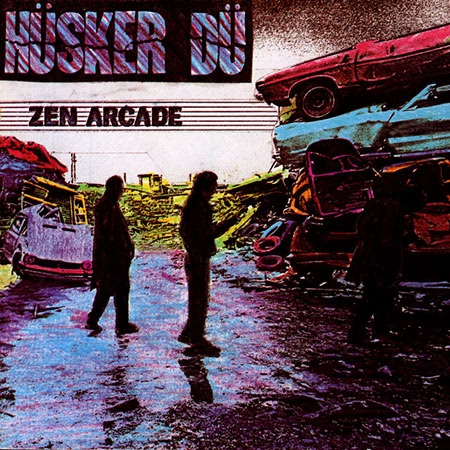Hüsker Dü: The Pioneers Who Turned Hardcore Into Art
Hüsker Dü. Formation: From St. Paul Basements to National Reverberation
Hüsker Dü (pronounced “Hoosker Doo,” from a Danish board game meaning “Do you remember?”) formed in 1979 in Saint Paul, Minnesota.
Core members:
- Bob Mould – guitar, vocals
- Grant Hart – drums, vocals
- Greg Norton – bass, backing vocals
Initially immersed in the blistering speeds of American hardcore punk, the band quickly evolved into something more complex, melodic, and emotionally resonant—making them one of the first bands to bridge the gap between punk and alternative rock.

Hüsker Dü. Musical Style: Hardcore Intensity Meets Melodic Catharsis
Hüsker Dü is known for their:
- Lightning-fast tempos and distorted guitars rooted in hardcore punk
- Dual vocal/songwriting dynamic between Mould and Hart—equal parts raw rage and poetic melancholy
- Lyrics that explore loss, identity, isolation, politics, and human frailty
- A sound that balances sonic aggression with melody, creating the blueprint for 80s and 90s alt-rock
- Lo-fi production aesthetics that evolved into more textured, experimental production over time
While peers were stuck in hardcore orthodoxy, Hüsker Dü elevated the genre into emotional and conceptual terrain rarely seen in punk at the time.
Hüsker Dü. Discography: Raw Power, Emotional Weight, and Sonic Evolution
Land Speed Record (1982)
Live debut. 17 songs in under 27 minutes.
A snapshot of their hardcore roots—furious, relentless, minimalist.
Everything Falls Apart (1983)
First studio album. Slightly more polished.
Still aggressive, but shows hints of melody and complexity.
Tracks: Everything Falls Apart, Gravity, Wheels
Zen Arcade (1984)
A double LP concept album about a disillusioned youth’s journey through trauma, dreams, and societal collapse.
A landmark of American punk and indie music.
Blends hardcore, psychedelia, piano ballads, tape loops, and noise.
Tracks: Something I Learned Today, Chartered Trips, Pink Turns to Blue, Reoccurring Dreams
One of the most influential underground albums of the 1980s.
New Day Rising (1985)
More melodic, but still urgent.
Mould’s guitar tone becomes signature—a wall of distortion with melody peeking through.
Tracks: Celebrated Summer, Books About UFOs, I Apologize
Flip Your Wig (1985)
Refined production, pop-punk sensibility emerging.
Their best-selling indie release.
Tracks: Makes No Sense at All, Flexible Flyer, Games
Candy Apple Grey (1986)
Major label debut (Warner Bros.).
More introspective and emotionally dark.
Ballads and slower tracks dominate, especially from Grant Hart.
Tracks: Sorry Somehow, Don’t Want to Know If You Are Lonely, Hardly Getting Over It
Warehouse: Songs and Stories (1987)
Another double album. Ambitious, more produced, and foreshadows 90s college rock and grunge.
Band tensions were high, but the music is rich and layered.
Tracks: These Important Years, Ice Cold Ice, She’s a Woman (And Now He Is a Man)
Hüsker Dü. Live Shows: Volume, Velocity, Vulnerability
- Known for punishingly loud, high-speed live shows in their early years
- As they matured, their sets incorporated more melodic and emotionally complex material
- The band’s chemistry—especially the creative rivalry between Mould and Hart—fueled the tension and brilliance of their performances
- Unlike many of their hardcore peers, they eschewed nihilism for emotional honesty
Hüsker Dü. Lyrics and Themes
- Mould’s lyrics: introspective, intense, dealing with alienation, identity, personal grief
- Hart’s lyrics: dreamier, poetic, often tinged with romanticism and psychedelia
- Themes: abandonment, self-doubt, addiction, escape, emotional struggle, disillusionment with authority
- Zen Arcade and Candy Apple Grey in particular are deeply emotional works without being self-indulgent
Legacy and Influence
- One of the first punk bands to sign with a major label without compromising their integrity
- Influenced the entire alternative rock explosion of the 1990s: Nirvana, Pixies, Sugar, Green Day, The Replacements, and beyond
- Helped invent the melodic hardcore and emo blueprints, paving the way for bands like Fugazi, Jawbreaker, and Jimmy Eat World
- Zen Arcade and New Day Rising are regularly listed among the greatest albums in punk history
Breakup and Aftermath
- Hüsker Dü disbanded in 1988 due to personal tensions, artistic differences, and substance abuse issues
- Grant Hart pursued a solo career and formed Nova Mob, releasing several underrated records before passing away in 2017
- Bob Mould formed Sugar (with Copper Blue becoming a 90s alt-rock gem) and has had a prolific solo career
- Greg Norton took a long break from music, returning later with new projects like Ultrabomb
Curiosities
- The band self-produced their SST Records albums, pioneering a DIY production ethos later adopted across indie scenes
- Their refusal to conform to punk clichés (mohawks, fashion, slogans) made them outsiders among outsiders
- Zen Arcade was recorded in only 85 hours—a double LP in four days
- Despite their legend status, they never released a traditional “best of” compilation during their career
Where to Start Listening?
- Zen Arcade – For a raw, ambitious conceptual journey
- New Day Rising – For a perfect mix of melody and punk force
- Candy Apple Grey – For emotional depth and songwriting maturity
- Flip Your Wig – For accessible, hook-laden punk-pop brilliance
- Warehouse: Songs and Stories – For expansive, bittersweet farewell
Official Archive and Streaming
Bob Mould’s Official Website
Most Hüsker Dü records are now available via streaming platforms (Spotify, Apple Music, YouTube), including the Savage Young Dü box set from Numero Group





